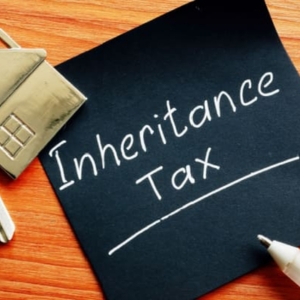Debunking the Odd Inheritance Tax Myths in the UKPosted by Ria Baral on April 13th, 2023  Agree with it or disbelieve – inheritance tax is Britain's worst and most hated tax. The rules considering IHT or inheritance tax are complicated. A tax planner understands the complexities associated with the concept. So, this post comes up with the top inheritance tax myths customers usually have in their minds. Not sure what is the tax rate on inheritance? Let's save time and demystify the myths associated with ITH in the UK. Myth 1: Your Civil Partner Will Inherit Every Asset You Leave BehindAssuming that your spouse will inherit your assets automatically after your demise is a misconception. Being in a committed relationship may help you pass on all your assets to your significant other. But the truth is somewhat different. Moreover, individuals also believe they don't require paying the tax if they leave everything to their partner's name. Every civil partner or spouse will have an amount for the IHT allowance. There is an additional tax-free property allowance. But that only applies to people who leave their house to any direct descendant. They might be your grandchildren, children, adopted kids, foster kids, stepsons/stepdaughters, or great-grandchildren. After your civil partner's demise, the surviving person may claim the unused inheritance tax allowance. Upon the demise of the spouse/civil partner, the surviving individual can claim any unused inheritance/property tax allowance. And after their death, they might have accumulated an inheritance or property tax allowance worth £1 million. The split is as follows: If the surviving spouse leaves the estate worth £1 million (including the £350,000 home to their kids), no inheritance tax are there to pay. The truth is rules concerning IHT are different for unmarried and married couples. Unmarried couples won't enjoy that exemption. A will also determines who inherits the real estate. Without a will, the property may pass on to the law of intestacy. That means your children will also get the property with your civil partner. The portion your child inherits will trigger the inheritance tax charges. Writing a will guarantees your property goes to someone you want it to inherit. With a will, you can divide your assets and money according to your preferences. Myth 2: Gifting the Property to Your Child Will Eliminate Paying the Inheritance TaxWhile it might seem logical to eliminate IHT on death, many uncertainties are associated with it. People even think they can still live there until death after passing on the house to their children. But that's only half the truth. Remember, the property transfer gets considered a gift. And after you die within seven years of gifting the property, that estate gets subjected to the gift tax. It is the "gift with reservation of benefit," where you offer a gift to your child. But you get the benefit of living in that property rent-free. Here, you need to learn the concept of GROB or Gift with Reservation of Benefit. GROB is the scenario where you gift but retain a few benefits. So, if you continue residing in the estate after gifting it, the house is the GROP. So, it won't fall under that seven-year rule. Its complete value gets counted towards the estate and is subject to the inheritance tax. Myth 3: You Can Gift More than £3k per Tax Year without IHTDid you know people in the UK think they can gift over £3k Per Tax Year without IHT? Yes, and that's another misconception. But here's a different story that points out the truth. Simply put, there are no hard-and-fast rules concerning the gifts you can give each year. The threshold means you can gift anything you want, even if it's worth £3,000. Most importantly, it does not involve any inheritance tax, So, even after your death within seven years, gifts under £3,000 won't count towards the estate. But if the gift value is more than £3,000, the tax might be applicable. However, inheritance tax only gets applied after your demise. Myth 4: The IHT Threshold for a Married Couple is £1MA few married couples may leave their houses to one another. And then they may leave the property to their direct descendants. For such cases, the combined inheritance tax thresholds might be £1m. But note that the inheritance tax exemptions & reliefs do not get automatically applied. People should claim them within the time frame. Especially for married couples having no direct descendants, the inheritance tax threshold is £650,000. So, for any asset that is more than £650,000, the tax rate is 40%. Some married couples leave their residential property to a direct descendant but have combined estates of over £2.35m. For them, the inheritance tax threshold is £650,000. If you believe any of the above myths, it might be complex for you and your family. So, discover the facts associated with IHT and understand how it works. Estimate the property's worth by contacting a tax professional at your earliest. Like it? Share it!More by this author |


